- Home
- Frank Herbert
The Book of Frank Herbert Page 4
The Book of Frank Herbert Read online
Page 4
“May I help you?” asked the mortician. Lewis explained his errand.
Johnson brought a small bottle from a desk drawer, passed it across to Lewis, then looked at the deputy with a puzzled frown. “How’d you get in?” asked the mortician. “I didn’t hear the front door chimes.”
The deputy shoved the bottle into a side pocket of his coat. “I parked in the alley and came in the back way,” he said. “The street out front is full of Odd Fellows cars.”
“Odd Fellows?” Johnson came around the desk.
“Paper said they were having some kind of rummage sale today,” said Lewis. He ducked his head to look under the shade on the front window. “I guess those are Odd Fellows cars. That’s the hall across the street.”
An ornamental shrub on the mortuary front lawn bent before the wind and a spattering of rain drummed against the window. Lewis straightened. “Left my raincoat in the car,” he said. “I’ll just duck out the way I came.”
Johnson moved to his office door. “Two of our attendants are due back now on a call,” he said. “They—”
“I’ve seen a stiff before,” said Lewis. He stepped past Johnson, headed for the door to the rear hall.
Johnson’s hand caught the deputy’s shoulder. “I must insist you go out the front,” said the mortician.
Lewis stopped, his mind setting up a battery of questions. “It’s raining out,” he said. “I’ll get all wet.”
“I’m sorry,” said Johnson.
Another man might have shrugged and complied with Johnson’s request, but Welby Lewis was the son of the late Proctor Lewis, who had been three times president of the Banbury County Sherlock Holmes Round Table. Welby had cut his teeth on logical deduction and the logic of this situation escaped him. He reviewed his memory of the hallway. Empty except for those tanks near the back door.
“What do you keep in those metal tanks?” he asked.
The mortician’s hand tightened on his shoulder and Lewis felt himself turned toward the front door. “Just embalming fluid,” said Johnson. “That’s the way it’s delivered.”
“Oh.” Lewis looked up at Johnson’s tightly drawn features, pulled away from the restraining hand and went out the front door. Rain was driving down and he ran around the side of the mortuary to his car, jumping in, slammed the door and sat down to wait. At 9:28 A.M. by his wrist watch an assistant mortician came out, opened the garage doors. Lewis leaned across the front seat, rolled down his right window.
“You’ll have to move your car,” said the assistant. “We’re going out on a call.”
“When are the other fellows coming back?” asked Lewis.
The mortician stopped halfway inside the garage. “What other fellows?” he asked.
“The ones who went out on that call this morning.”
“Must be some other mortuary,” said the assistant. “This is our first call today.”
Thanks,” said Lewis. He rolled up his window, started the car and drove to the county hospital. The battery of unanswered questions churned in his mind. Foremost was—Why did Johnson lie to keep me from going out the back way?
At the hospital he delivered the bottle to the pathology lab, found a pay booth and called the Banbury Mortuary. An attendant answered and Lewis said, “I want to settle a bet. Could you tell me how embalming fluid is delivered to mortuaries?”
“We buy it by the case in concentrated form,” said the mortician. “Twenty-four glass bottles to the case, sixteen ounces to the bottle. It contains red or orange dye to give a lifelike appearance. Our particular brand smells somewhat like strawberry soda. There is nothing offensive about it. We guarantee that the lifelike—”
“I just wanted to know how it came,” said Lewis. “You’re sure it’s never delivered in metal tanks?”
“Good heavens, no!” said the man. “It’d corrode them!”
“Thanks,” said Lewis and hung up softly. In his mind was the Holmesian observation: If a man lies about an apparently inconsequential thing, then that thing is not inconsequential.
He stepped out of the booth and bumped into Dr. Bellarmine, the autopsy surgeon. The doctor was a tall, knobby character with gray hair, sun-lamp tan and blue eyes as cutting as two scalpels.
“Oh, there you are, Lewis,” he said. “They told me you were down this way. We found enough alcohol in that Cerino woman to kill three people. We’ll check the stomach washings, too, but I doubt they’ll add anything.”
“Cerino woman?” asked Lewis.
“The old alcoholic you found in that shack by the roundhouse,” said Bellarmine. “You losing your memory?”
“Oh… oh, certainly,” said Lewis. “I was just thinking of something else. Thanks, Doc.” He brushed past the surgeon. “Gotta go now,” he muttered.
Back at his office Lewis sat on a corner of his desk, pulled the telephone to him and dialed the Johnson-Tule Mortuary. An unfamiliar masculine voice answered. Lewis said, “Do you do cremations at your mortuary?”
“Not at our mortuary,” said the masculine voice, “but we have an arrangement with Rose Lawn Memorial Crematorium. Would you care to stop by and discuss your problem?”
“Not right now, thank you,” said Lewis, and replaced the phone on its hook. He checked off another question in his mind—the possibility that the tanks held gas for a crematorium. What the devil’s in those tanks? he asked himself. “Somebody die?” The voice came from the doorway, breaking into Lewis’ reverie. The deputy turned, saw Sheriff Czernak.
“No,” said Lewis. “I’ve just got a puzzle.” He went around the desk to his chair, sat down.
“Doc Bellarmine say anything about the Cerino dame?” asked the sheriff. He came into the room, eased himself into the chair beneath the calendar art.
“Alcoholism,” said Lewis. “Like I said.” He leaned back in his chair, put his feet on the desk and stared at a stained spot on the ceiling.
“What’s niggling you?” asked the sheriff. “You look like a guy trying to solve a conundrum.”
“I am,” said Lewis and told him about the incident at the mortuary.
Czernak took off his hat, scratched his bald head. “It don’t sound like much to me, Welby. In all probability there’s a very simple explanation.”
“I don’t think so,” said Lewis.
“Why not?”
Lewis shook his head. “I don’t know. I just don’t think so. Something about that mortuary doesn’t ring true.”
“What you think’s in them tanks?” asked the sheriff.
“I don’t know,” said Lewis.
The sheriff seated his hat firmly on his head. “Anybody else I’d tell ’em forget it,” he said. “But you—I dunno. I seen you pull too many rabbits out of the hat. Sometimes I think you’re a freak an’ see inside people.”
“I am a freak,” said Lewis. He dropped his feet to the floor, pulled a sketch pad to him and began doodling.
“Yeah, I can see you got six heads,” said the sheriff.
“No, really,” said Lewis. “My heart’s on the right side of my chest.”
“I hadn’t noticed,” said the sheriff. “But now, you point it out to me—”
“Freak,” said Lewis. “That’s what I felt looking at that mortician. Like he was some kind of a creepy freak.”
He pushed the scratch pad away from him. It bore a square broken into tiny segments by zigzag lines. Like a jigsaw puzzle.
“Was he a freak?”
Lewis shook his head. “Not that I could see.”
Czernak pushed himself out of his chair. “Tell you what,” he said. “It’s quiet today. Why’ncha nose around a little?”
“Who can I have to help me?” asked Lewis.
“Barney Keeler’ll be back in about a half hour,” said Czernak. “He’s deliverin’ a subpoena for Judge Gordon.”
“O.K.,” said Lewis. “When he gets back tell him to go over to the Odd Fellows Hall and go in the back way without attracting too much attention. I want him to go up
to that tower room and keep watch on the front of the mortuary, note down everybody who enters or leaves and watch for those tanks. If the tanks go out, he’s to tail the carrier and find out where they go.”
“What’re you gonna do?” asked the sheriff.
“Find a place where I can keep my eye on the back entrance. I’ll call in when I get set.” Lewis hooked a thumb toward the desk across from his. “When Joe Welch comes on, send him over to spell me.”
“Right,” said Czernak. “I still think maybe you’re coon-doggin’ it up an empty tree.”
“Maybe I am,” said Lewis. “But something shady about a mortuary gives my imagination the jumps. I keep thinking of how easy it could be for a mortician to get rid of an inconvenient corpse.”
“Stuff it in one of them tanks, maybe?” asked the sheriff.
“No. They weren’t big enough.” Lewis shook his head. “I just don’t like the idea of the guy lying to me.”
It was shortly after 10:30 A.M. when Lewis found what he needed—a doctor’s office in the rear of a building across the alley and two doors up from the mortuary garage. The doctor had three examining rooms on the third floor, the rear room looking down on the mortuary back yard. Lewis swore the doctor and his nurse to secrecy, set himself up in the back room with a pair of field glasses.
At noon he sent the nurse out for a hamburger and glass of milk for his lunch, had her watch the mortuary yard while he called his office and told the day radio operator where he was.
The doctor came into the back room at five o’clock, gave Lewis an extra set of keys for the office, asked him to be certain the door was locked when he left. Again Lewis warned the doctor against saying anything about the watch on the mortuary, stared the man down when it appeared he was about to ask questions. The doctor turned, left the room. Presently, a door closed solidly. The office was silent
At about 7:30 it became too dark to distinguish clearly anything that might happen in the mortuary back yard. Lewis considered moving to a position in the alley, but two floodlights above the yard suddenly flashed on and the amber glow of a night light came from the window in the back door.
Joe Welch pounded on the door of the doctor’s office at 8:20. Lewis admitted him, hurried back to the window with Welch following. The other deputy was a tall, nervous chain-smoker with a perpetual squint, a voice like a bassoon. He moved to a position beside Lewis at the window, said, “What’s doing? Sheriff John said something about some acetylene tanks.”
“It may be nothing at all,” said Lewis. “But I’ve a feeling we’re onto something big.” In a few short sentences he explained about his encounter with the mortician that morning.
“Don’t sound exciting to me,” said Welch. “What you expecting to find in those tanks?”
“I wish I knew,” said Lewis.
Welch went into the corner of the darkened room, lighted a cigarette, returned. “Why don’t you just ask this Johnson?”
“That’s the point,” said Lewis. “I did ask him and he lied to me. That’s why I’m suspicious. I’ve been hoping they’d take those tanks out and we could trail them to wherever they go. Get our answer that way.”
“Why’re you so sure it’s the tanks he didn’t want you to see?” asked Welch.
“That was a funny hallway,” said Lewis. “Door at each end, none along the sides. Only things in it were those tanks.”
“Well, those tanks might already be gone,” said Welch. “You didn’t get on this end until about 10:30 you said and Keeler wasn’t on the front until about eleven. They could’ve been taken out then if they’re so all-fired important.”
“I’ve had the same thought,” said Lewis. “But I don’t think they have. I’m going out to grab a bite to eat now, then I’m going down in the alley for a closer look.”
“You won’t get very close with all them lights on the yard,” said Welch.
Lewis pointed to the garage. “If you look close you can see a space along the other side; in the shadow there. The light’s on in the back hall. Ill try to get close enough for a look through the window in that rear door. They’re tall tanks. I should be able to see them.”
“And if they’ve been moved some place else in the building?” asked Welch.
“Then I’ll have to go in and brace Johnson for a showdown,” said Lewis. “Maybe I should’ve done that in the first place, but this is a screwy situation. I just don’t like a mystery in a mortuary.”
“Sounds like the title of a detective story,” said Welch. “‘Mystery in a Mortuary.’”
Welby sniffed. “There’s already death inside there,” he said. “This could be something mighty unpleasant.”
Welch lighted a new cigarette from the coal of the one he had been smoking, stubbed out the discard in a dish Lewis had been using for an ash tray. “You may be right,” said Welch. “The only thing impresses me about this shebang, Welby, is like Sheriff John said—I’ve seen you pull too many rabbits out of the hat.”
“That’s what he told you?” asked Lewis.
“Yeah, but he thinks maybe you’re gonna pull a blank this time.” Welch stared down at the mortuary. “If you go inside, do you want me to round up a few of my men and smother the place if you don’t come out by some set time?”
“I don’t think that’ll be necessary,” said Lewis. “Don’t take any action unless you see something suspicious.”
Welch nodded his head. “O.K.,” he said. He looked at the glowing tip of his cigarette, glanced down at the yard they were watching. “Mortuaries give me the creeps anyway,” he said.
Lewis bolted a hot beef sandwich at a café two blocks from the mortuary, returned along a back street. It was cold and wet in the alley. A perverse wind kept tangling the skirts of his raincoat. He hugged the shadows near the mortuary garage, found the row of boards which had been nailed across the area he was going to use. Lewis clambered over the boards, dropped to soft earth which was out of the wind but under a steady dripping from unguttered eaves. He moved quietly to the end of the shadow area and, as he had expected, could see inside the window on the rear door of the mortuary. The tanks were not visible. Lewis cursed under his breath, shrugged, stepped out of the shadows and crossed the lighted back yard. The door was locked, but he could see through the window that the hallway was empty. He went around to the front door, rang the night bell.
A man in a rumpled black suit which looked as though he had slept in it answered the door. Lewis brushed past him into the warm flower smell of the foyer. “Is Johnson here?” he asked.
“Mr. Johnson is asleep,” said the man. “May I be of service?”
“Ask Mr. Johnson to come down, please,” said Lewis. “This is official business.” He showed his badge.
“Of course,” said the man. “If you’ll go into the office there and have a seat, I’ll tell Mr. Johnson you’re here. He sleeps in the quarters upstairs.”
“Thanks,” said Lewis. He went into the office, looked at the colored photograph of Mount Lassen until the night attendant had disappeared up the stairs at the other end of the foyer. Then Lewis came out of the office, went to the doorway leading into the hall. The door was locked. He tried forcing it, but it wouldn’t budge. He moved to the hinge side, found a thin crack which gave a view of the other end of the hall. What he saw made him draw in a quick breath. The three metal tanks were right where he had expected them to be. He went back to the office, found a directory and looked up the number of the doctor’s office where Welch was waiting, dialed the number. After a long wait Welch’s voice came on the line, tones guarded. “Yes?”
“This is Welby,” said Lewis. “Anything come in the back?”
“No,” said Welch. “You all right?”
“I’m beginning to wonder,” said Lewis. “Keep your eyes peeled.” He hung up, turned to find Johnson’s tall figure filling the office doorway.
“Mr. Lewis,” said Johnson. “Is something wrong?” He came into the office.
“I want to h
ave a look at those metal tanks,” said Lewis.
Johnson stopped. “What metal tanks?”
“The ones in your back hall,” said Lewis.
“Oh, the embalming fluid,” said Johnson. “What’s the interest in embalming fluid?”
“Let’s just have a look at it,” said Lewis.
“Do you have a warrant?” asked Johnson.
Lewis’ chin jerked up and he stared at the man. “I wouldn’t have a bit of trouble getting one,” he said.
“On what grounds?”
“I could think of something that’d stick,” said Lewis. “Are we going to do this the easy way or the hard way?”
Johnson shrugged. “As you wish.” He led the way out of the office, unlocked the hall door, preceded Lewis down the hallway to the three tanks.
“I thought embalming fluid came in sixteen-ounce glass bottles,” said Lewis.
“This is something new,” said Johnson. “These tanks have glass inner liners. The fluid is kept under pressure.” He turned a valve and an acrid spray emerged from a fitting at the top.
Lewis took a shot in the dark, said, “That doesn’t smell like embalming fluid.”
Johnson said, “It’s a new type. We add the masking perfumes later.”
“You just get these filled?” asked Lewis.
“No, these were delivered last week,” said Johnson. “We’ve left them here because we don’t have a better place to store them.” He smiled at Lewis, but the eyes remained cold, watchful. “Why this interest?”
“Call it professional curiosity,” said Lewis. He went to the rear door, unlatched it and locked the latch in the open position, stepped outside, closed the door. He could see the tanks plainly through the window. He came back into the hallway.
He’s still lying to me, thought Lewis. But it’s all so very plausible. He said, “I’m going to give your place a thorough search.”
“But why?” protested Johnson.
“For no good reason at all,” said Lewis. “If you want, I’ll go out and get a warrant.” He started to brush past Johnson, was stopped by a strong hand on his shoulder, something hard pressing into his side. He looked down, saw a flat automatic menacing him.

 Direct Descent
Direct Descent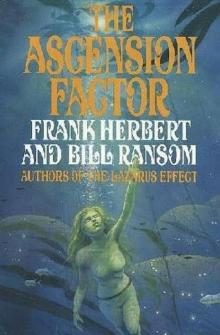 The Ascension Factor
The Ascension Factor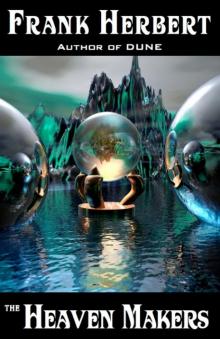 The Heaven Makers
The Heaven Makers Children of Dune
Children of Dune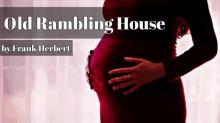 Old Rambling House
Old Rambling House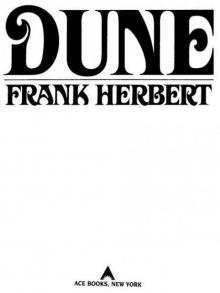 Dune
Dune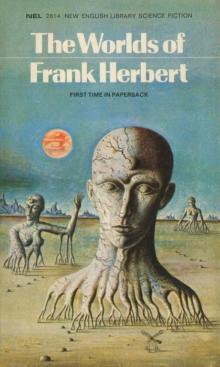 The Worlds of Frank Herbert
The Worlds of Frank Herbert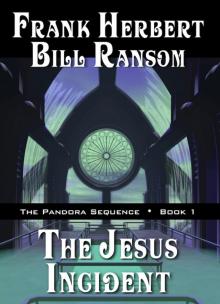 The Jesus Incident
The Jesus Incident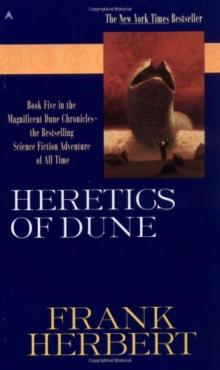 Heretics of Dune
Heretics of Dune Whipping Star
Whipping Star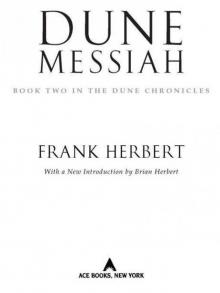 Dune Messiah
Dune Messiah Man of Two Worlds
Man of Two Worlds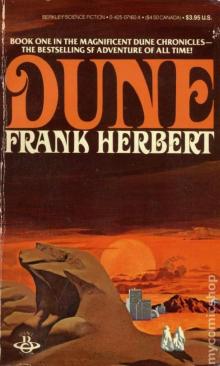 The Book of Frank Herbert
The Book of Frank Herbert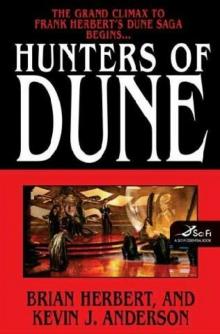 Hunters Of Dune
Hunters Of Dune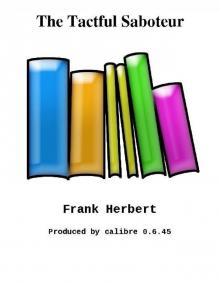 The Tactful Saboteur
The Tactful Saboteur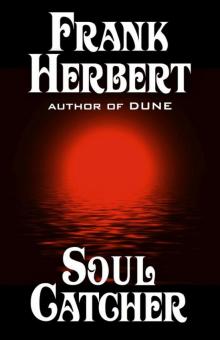 Soul Catcher
Soul Catcher God Emperor of Dune
God Emperor of Dune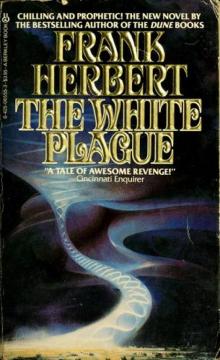 The White Plague
The White Plague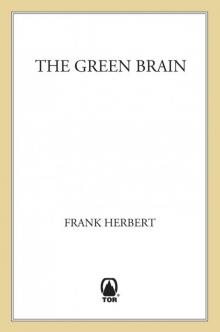 The Green Brain
The Green Brain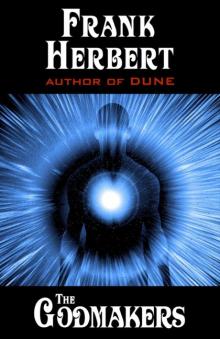 The Godmakers
The Godmakers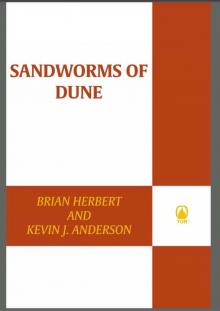 Sandworms of Dune
Sandworms of Dune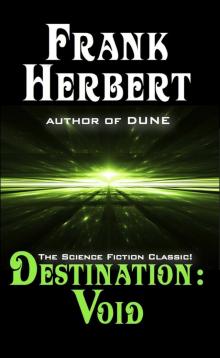 Destination Void
Destination Void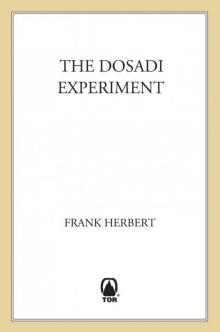 The Dosadi Experiment
The Dosadi Experiment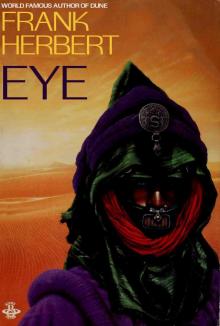 Eye
Eye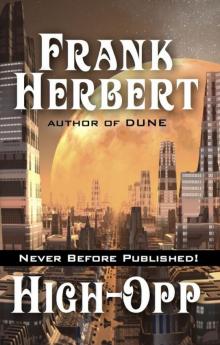 High-Opp
High-Opp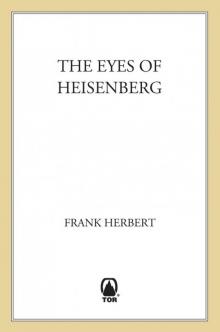 The Eyes of Heisenberg
The Eyes of Heisenberg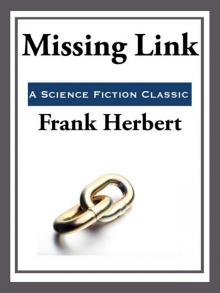 Missing Link
Missing Link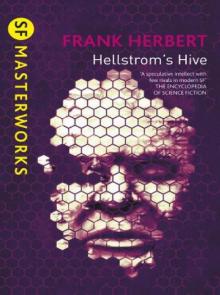 Hellstrom's Hive
Hellstrom's Hive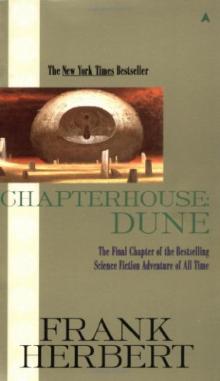 Chapterhouse: Dune
Chapterhouse: Dune The Santaroga Barrier
The Santaroga Barrier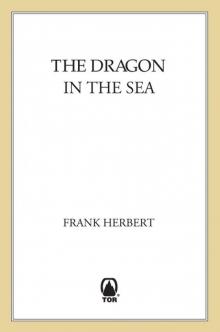 The Dragon in the Sea
The Dragon in the Sea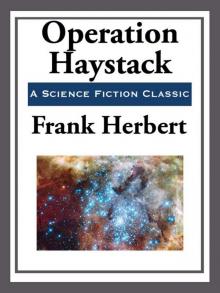 Operation Haystack
Operation Haystack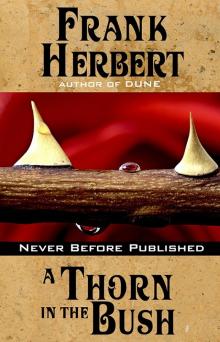 A Thorn in the Bush
A Thorn in the Bush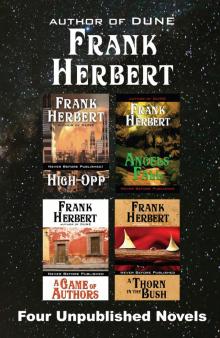 Four Unpublished Novels
Four Unpublished Novels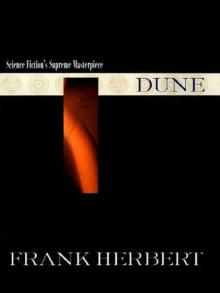 Dune dc-1
Dune dc-1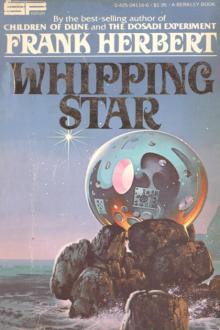 Jorj X. McKie 1 - Whipping Star
Jorj X. McKie 1 - Whipping Star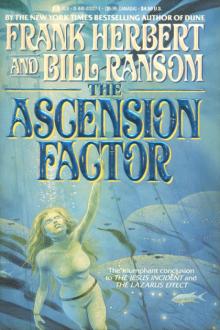 DV 4 - The Ascension Factor
DV 4 - The Ascension Factor Frank Herbert - Dune Book 4 - God Emperor Of Dune
Frank Herbert - Dune Book 4 - God Emperor Of Dune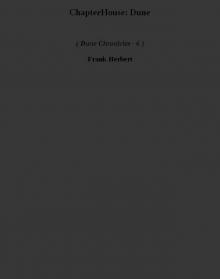 ChapterHouse: Dune dc-6
ChapterHouse: Dune dc-6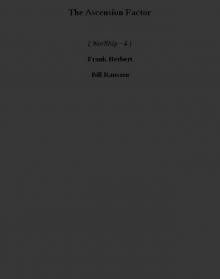 The Ascension Factor w-4
The Ascension Factor w-4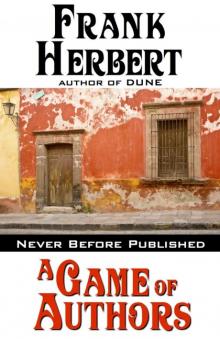 A Game of Authors
A Game of Authors Children of Dune dc-3
Children of Dune dc-3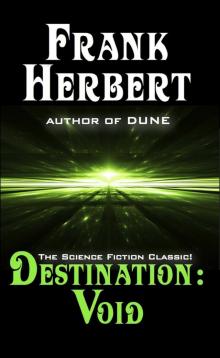 Destination: Void: Prequel to the Pandora Sequence
Destination: Void: Prequel to the Pandora Sequence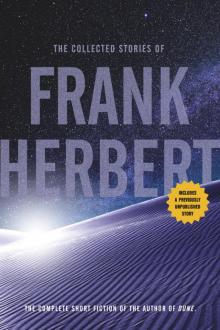 The Collected Stories of Frank Herbert
The Collected Stories of Frank Herbert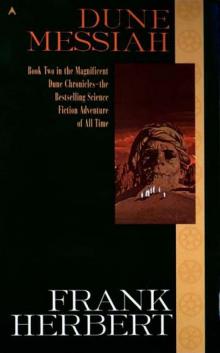 Dune Messiah dc-2
Dune Messiah dc-2 Frank Herbert - Dune Book 5 - Heretics of Dune
Frank Herbert - Dune Book 5 - Heretics of Dune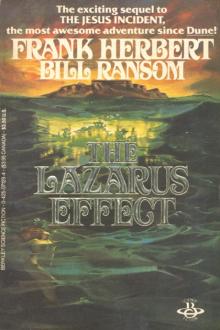 DV 3 - The Lazarus Effect
DV 3 - The Lazarus Effect The Jesus Incident w-2
The Jesus Incident w-2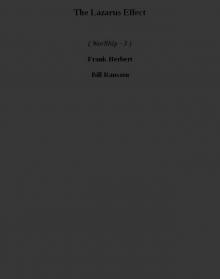 The Lazarus Effect w-3
The Lazarus Effect w-3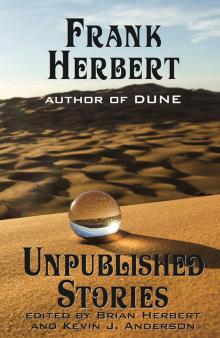 Frank Herbert
Frank Herbert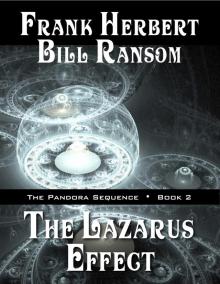 The Ascension Factor: Pandora Sequence
The Ascension Factor: Pandora Sequence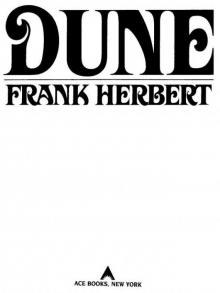 Dune (40th Anniversary Edition)
Dune (40th Anniversary Edition)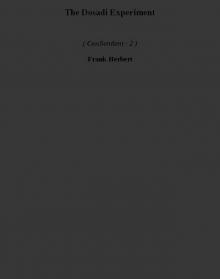 The Dosadi Experiment c-2
The Dosadi Experiment c-2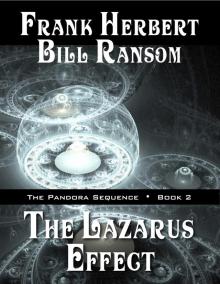 The Lazarus Effect
The Lazarus Effect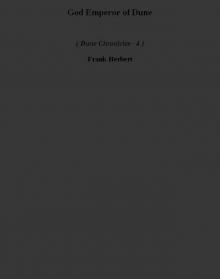 God Emperor of Dune dc-4
God Emperor of Dune dc-4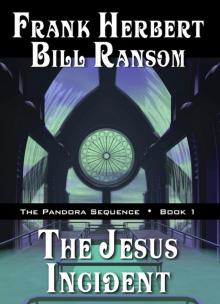 The Pandora Sequence: The Jesus Incident, the Lazarus Effect, the Ascension Factor
The Pandora Sequence: The Jesus Incident, the Lazarus Effect, the Ascension Factor The Green Brain (v4.0)
The Green Brain (v4.0) The Heaven Makers (v4.0)
The Heaven Makers (v4.0) Heretics of Dune dc-5
Heretics of Dune dc-5